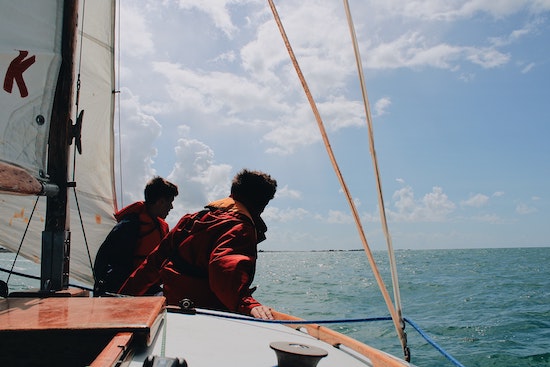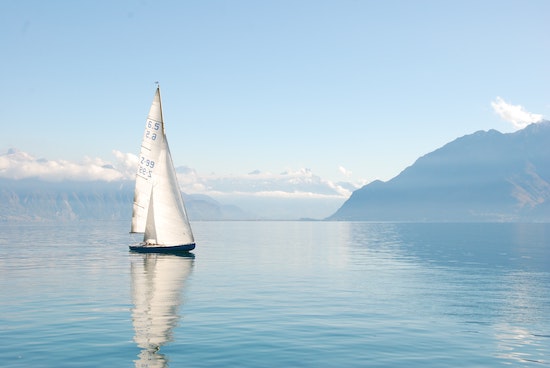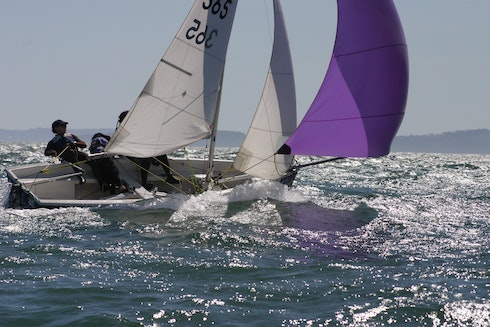Welcome to our blog, where we aim to unravel the question: Is sailing a sport or just a hobby? Whether you are new to the world of sailing or have been navigating the open waters for some time, it’s a topic that often sparks debate. We will explore the intricacies of sailing as a sport, its classification as a hobby, and delve into the reasons why it is undoubtedly a sport. So, if you’ve ever wondered about the classification of sailing or simply want to learn more about its different types, you’ve come to the right place. Let’s set sail on this exhilarating journey of discovery together!
Introduction

Sailing is a popular recreational activity that involves navigating a boat or a ship through the use of wind as a propelling force. But is sailing considered a sport? The answer to this question depends on how you define a sport. While some might argue that sailing is simply a leisure activity or a hobby, others believe that it meets all the criteria to be classified as a sport. Let’s delve deeper into this debate and explore the different aspects of sailing that make it a contender for the title of a sport.
Firstly, one of the key characteristics of a sport is the presence of competition. Sailing competitions, also known as regattas, have been held for centuries and involve different types of boats competing against each other. These races require skill, strategy, and physical exertion as sailors navigate their vessels through various maneuvers to gain a competitive edge. This competitive aspect of sailing is further emphasized by the existence of governing bodies, such as World Sailing, that oversee the organization and rules of these races.

Secondly, sailing requires a certain level of physical fitness and endurance. Maneuvering a sailboat involves multiple physical tasks, including hoisting and adjusting sails, trimming the sheets, and controlling the helm. Sailors need to possess strength, agility, and balance to effectively operate the boat and respond to changing wind and water conditions. Additionally, long-distance races or offshore sailing can be physically demanding, as sailors may need to endure hours or even days at sea battling wind, waves, and fatigue.
Lastly, sailing also demands a high level of technical skill and knowledge. Sailors must understand the principles of aerodynamics, hydrodynamics, and meteorology to optimize their boat’s performance and make strategic decisions during a race. They need to interpret wind patterns, tidal currents, and weather forecasts to chart the most efficient course. Furthermore, sailing involves teamwork and communication, particularly in crewed boats, where coordination and cooperation among team members are essential for success.
Does Sailing Count as a Sport?

Sailing is often debated as to whether it should be considered a sport or not. Some argue that sailing is merely a leisure activity or hobby, while others believe it meets all the criteria to be classified as a sport. So, does sailing truly count as a sport?
Firstly, let’s consider the definition of a sport. According to the Oxford English Dictionary, a sport is an activity involving physical exertion and skill in which an individual or team competes against another or others. By this definition, sailing certainly fits the criteria. It requires both physical strength and stamina, as well as technical skill and knowledge of the wind and water conditions.
In addition to the physical and skill-based aspects, sailing often involves competitive races and regattas. These events require strategy, teamwork, and a competitive spirit. Just like in any other sport, sailors strive to win races and championships, aiming to outperform their rivals and reach the top of the leaderboard. This competitive element further supports the argument that sailing is indeed a sport.
Furthermore, sailing is recognized by various sports governing bodies around the world. For instance, the International Olympic Committee recognizes sailing as an official Olympic sport, which further solidifies its status as a sport. Sailing also has its own set of rules and regulations, ensuring fair play and competition among participants.
Lastly, it is worth mentioning that the physical demands of sailing should not be underestimated. Maneuvering a sailboat, especially in high winds, requires strength, agility, and endurance. Sailors often face challenging conditions, such as strong waves, gusty winds, and unpredictable weather. These factors make sailing a physically demanding activity, similar to other well-established sports.
Is Sailing a Hobby?

When it comes to leisure activities, many people find solace and joy in pursuing various hobbies. One such activity that often comes to mind is sailing. But the question remains – is sailing truly a hobby? Let’s explore this topic and delve into the various aspects that define sailing as a recreational pursuit.
Sailing as a Recreational Activity:
As defined by the Oxford Dictionary, a hobby is an activity done regularly in one’s leisure time for pleasure. From this perspective, sailing undeniably qualifies as a hobby. People engage in sailing as a means of relaxation, escaping the demands of everyday life and experiencing the tranquility of the open water. With the wind in their sails and the sound of waves beneath them, sailors find a sense of freedom and serenity that makes sailing an appealing leisure pursuit.

Skills and Challenges:
Sailing goes beyond just a hobby and encompasses a range of skills and challenges. To navigate the waters successfully, sailors must master the art of understanding wind patterns, tides, and weather conditions. They must also possess knowledge of different sail types and how to trim them effectively. Learning these skills takes time and dedication, making sailing a hobby that requires continuous learning and improvement.
Different Types of Sailing:
Sailing offers a variety of options for enthusiasts to explore. From competitive racing to cruising and exploration, there’s something for everyone. Racing enthusiasts can participate in regattas and enjoy the thrill of competing against fellow sailors, honing their skills and striving for victory. On the other hand, those seeking a more leisurely experience can embark on long voyages, discovering new coastlines, islands, and even distant countries.
Types of Sport Sailing

Sport sailing is an exciting and adventurous activity that combines the beauty of the open water with the thrill of competition. There are several types of sport sailing that attract individuals from all walks of life. Whether you are a beginner looking to try something new or an experienced sailor seeking a new challenge, there is a type of sport sailing that suits your interests and skill level. We will explore the various types of sport sailing and what makes each one unique.
- Match Racing: Match racing is a type of sport sailing that involves two identical boats racing against each other. The objective is to outmaneuver and outpace the opposing boat to reach the finish line first. This type of sailing requires quick thinking, strategic decision-making, and excellent teamwork. It is often regarded as one of the most intense and exciting forms of sport sailing.
- Team Racing: Team racing, as the name suggests, involves teams of sailors competing against each other. Unlike match racing, team racing involves multiple boats from each team on the racecourse at the same time. The goal is not just to win individually, but also to work together as a team to secure an overall victory. Team racing requires strong communication, coordination, and tactical skills.
- Fleet Racing: Fleet racing is perhaps the most common type of sport sailing. In this format, a large number of boats start together and race towards a common finish line. The first boat to cross the line is the winner. Fleet racing requires not only good boat handling skills but also an understanding of wind patterns and the ability to make strategic decisions based on the positions of other boats.
These are just a few examples of the many types of sport sailing that exist. Other forms include offshore racing, speed sailing, and windsurfing. Each type has its own set of rules and challenges, providing sailors with a diverse range of options to explore and enjoy. Regardless of which type of sport sailing you choose, one thing is certain – it offers an incredible experience on the water and a chance to connect with nature in a unique way.
In conclusion, the various types of sport sailing provide a wide range of options for sailors of all levels of experience and expertise. Whether you prefer the intense one-on-one competition of match racing, the teamwork and strategy of team racing, or the thrill of fleet racing, there is a type of sport sailing that will suit your interests and challenge your abilities. So, grab your sailing gear, hop aboard a boat, and embark on an exhilarating sport sailing adventure!




